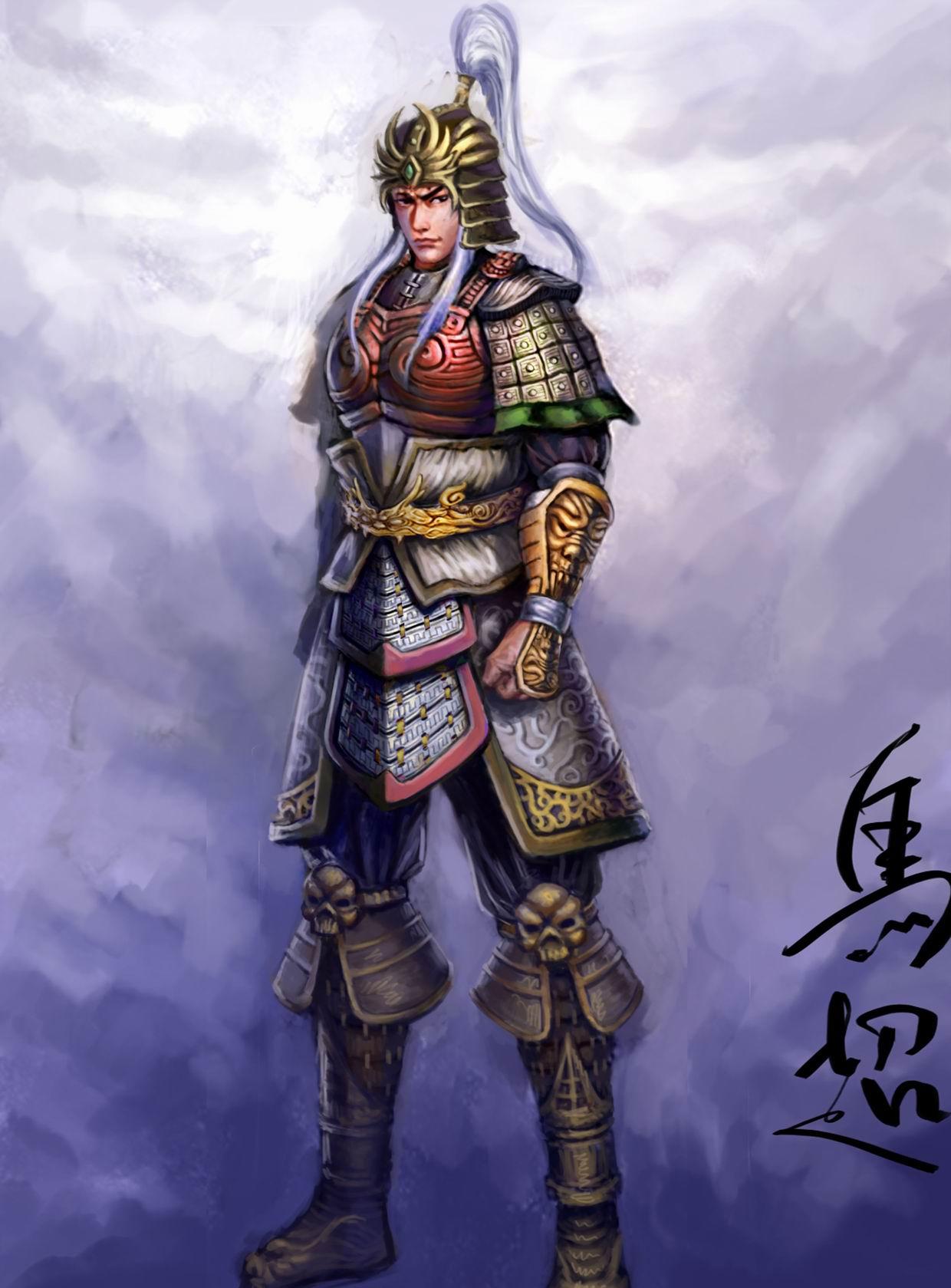Mention the "Five Tiger Generals" I believe that every Chinese is well known, Guan Yu, Zhang Fei, Ma Chao, Zhao Yun, Huang Zhong, folk saying that the five are famous and outstanding in battle. However, readers who know a little about history may find that after the establishment of the Shu State, Ma Chao basically had no record of his military achievements, and it can be said that he was completely reduced to the "vase" of the Shu State.
Ma Chaozi Mengqi, a native of Fufeng Maoling (present-day Xingping, Shaanxi), whose father Ma Teng rebelled against Bianzhang and Han Sui in the northwest during the reign of Emperor Ling of Han, was given the title of General of Zhengxi. Ma Teng later became a wei lieutenant in the dprk with Han Sui, while Ma Chao led Ma Teng's part and continued to follow Han Sui in the northwest.

The image comes from the Internet, invasion and deletion
Although Ma Chao and Ma Teng were father and son, the relationship was obviously not good, and when he followed Han Sui to attack Cao Cao, he did not have the slightest concern that his father was under Cao Cao's hands, and in the second year of Han Sui Ma Chao's uprising, Cao Cao destroyed Ma Teng's entire family in the capital and destroyed the three tribes.
After the combined forces of Han Sui and Ma Chao were defeated by the "poisoner" Jia Xu at Tongguan, Ma Chao ran back to the northwest to continue the rebellion with the prestige of the Qiang people, and killed Liangzhou's assassin Shi Weikang to occupy Jicheng (in present-day Gangu County, Gansu Province), but was immediately driven out of Jicheng by Wei Kang's old troops.
Ma Chao, who had fled in a daze, ran to Hanzhong to attach himself to Zhang Lu, but it was obvious that Zhang Lu was not very relieved about this warlord who dared to "pit daddy" and had ambitions. Ma Chao, who was not reused, heard that Liu Bei was besieging Chengdu and defected to Liu Bei.
At this time, Ma Chao, although he had been wandering for half a life to fame, ma Chao led his troops to Chengdu city and frightened Liu Zhang to surrender, and because he forced Liu Zhang to surrender, Ma Chao was named a general of Pingxi.
After that, Ma Chao successively served as a general of the left and a general of the Hun Cavalry in Liu Bei's clique, and although his military position was very high, he never had the opportunity to lead alone. Ma Chao was reduced to a mascot-like existence in the Shu Han Group, with a high official position and good treatment, but no real power and no room for ambition. For Liu Bei, he wanted to use it and defend himself, taking advantage of Ma Chao's prestige in the northwest, and in the future, the Northern Expedition could win the support of the Qiang people in the northwest, and at the same time, Ma Chao was a person who even dared to pit his father who had once stood on his own, and he had to prevent him from leading the army to become a force of his own.
Regarding Liu Bei's defense against Ma Chao, we can refer to the first half of the two people's lives, which are basically turbulent and displaced, leaning around, once self-reliant, and the growth trajectory is basically the same. As a generation of British lords, Liu Bei experienced many backyard fires in his early years, and of course he would attach great importance to the stability of the team, and the establishment of the Shu Han regime in the middle of his life would certainly not give Ma Chao the opportunity to pull the team alone.
Understanding Liu Bei's suspicions, the depressed Ma Chao no longer had the ambition of his youth, plus after liu Bei came to Sichuan, he had no foundation, and could only live a cautious life, and Ma Chao only did two things in the later period, one was to follow the group of ministers to persuade Liu Bei to become the king of Hanzhong, and the other was a small report to Peng Xian.
Peng Xi was a native warrior, who was more willful and proud, and had a bad relationship with Zhuge Liang, so he was sent to Jiangyang as a taishou. Peng Xian visited Ma Chao before his departure and spoke frivolously, while slandering Liu Bei as a veteran and unreasonable and did not reuse himself, on the other hand, he also drew Ma Chao to hope that the two would unite, cooperate with each other, and the world could be determined. Peng Xian's remarks frightened Ma Chao, he was not Liu Bei's hardcore, and now being contaminated with Peng Xi's frivolous person would only cause trouble, so he turned around and reported Peng Xi's words to Liu Bei, and eventually Peng Xi was imprisoned and executed.
It can be seen from the Peng Xian incident that Ma Chao's disgraceful deeds in the first half of his life have always been a thorn in Liu Bei's heart, and it is not ruled out that Liu Bei's handling of Peng Xian may have killed chickens and monkeys, and Ma Chao, who experienced this incident, can only be more cautious and honest in his words and deeds.
In the second year of Zhang Wu (222 AD), the 47-year-old Shu general Hou Machao of The Shu Dynasty and Hou Machao of Qixiang died of depression after 7 years of defecting to Liu Bei. Looking back on Ma Chao's life, indirectly killing his father is a lingering shadow for a lifetime, briefly establishing his own power and being destroyed, successively defecting to Han Sui, Zhang Lu, and Liu Bei, although he is in a high position, he is not trusted, and the hero is useless.